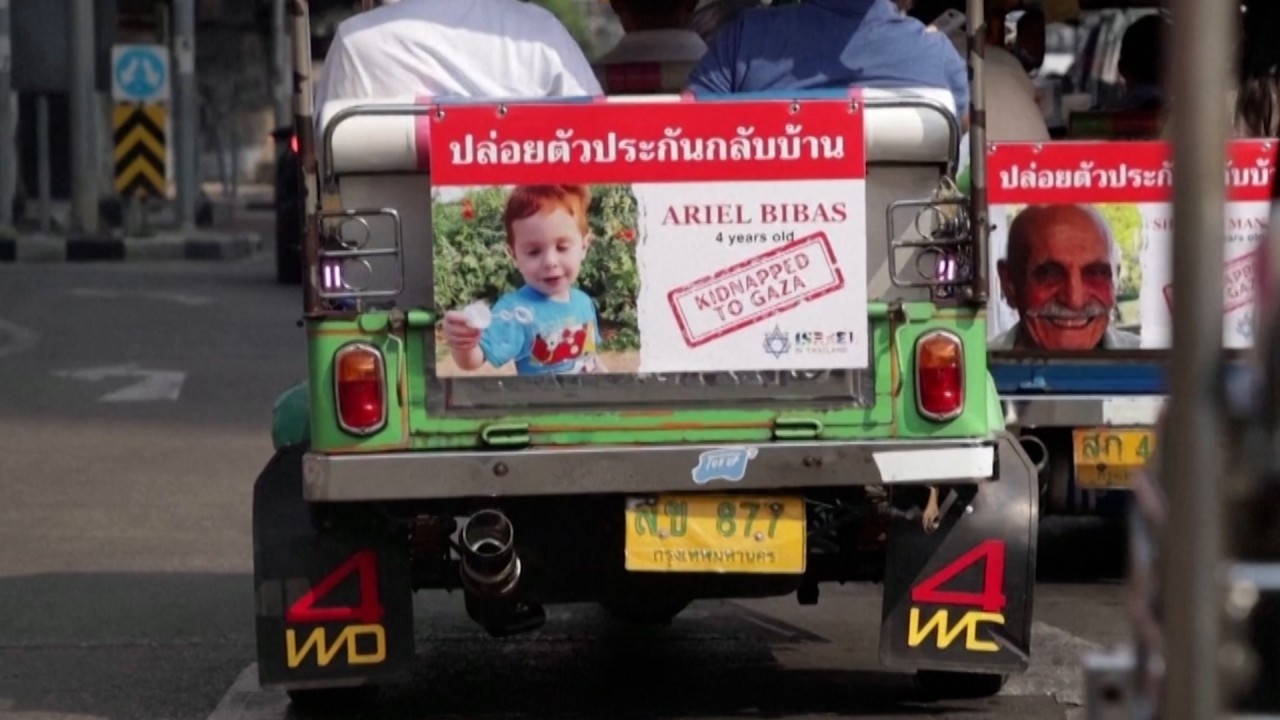The EU countries also reiterated their calls for Israel not to launch an assault on the Gaza city of Rafah, which has become the main shelter zone in the stricken territory.

Hungary is a staunch supporter of Israel and has frequently refused to go along with EU statements seen as critical of the country.
The US draft text “determines that under current circumstances a major ground offensive into Rafah would result in further harm to civilians and their further displacement including potentially into neighbouring countries”.
Israel says it will fight during Ramadan unless Hamas frees hostages
Israel says it will fight during Ramadan unless Hamas frees hostages
Israel plans to storm Rafah, where more than 1 million of the 2.3 million Palestinians in Gaza have sought shelter, prompting international concern that such a move would sharply worsen the humanitarian crisis in Gaza.
The draft US resolution says such a move “would have serious implications for regional peace and security, and therefore underscores that such a major ground offensive should not proceed under current circumstances”.
It was not immediately clear when or if the draft resolution would be put to a vote in the 15-member council. A resolution needs at least nine votes in favour and no vetos by the United States, France, Britain, Russia or China to be adopted.
Washington traditionally shields its ally Israel from UN action and has twice vetoed council resolutions since October 7. But it has also abstained twice, allowing the council to adopt resolutions that aimed to boost aid to Gaza and called for urgent and extended humanitarian pauses in fighting.
The draft US text would condemn calls by some Israeli government ministers for Jewish settlers to move to Gaza and would reject any attempt at demographic or territorial change in Gaza that would violate international law.
The resolution would also reject “any actions by any party that reduce the territory of Gaza, on a temporary or permanent basis, including through the establishment officially or unofficially of so-called buffer zones, as well as the widespread, systematic demolition of civilian infrastructure.”
Reuters reported in December that Israel told several Arab states that it wants to carve out a buffer zone inside Gaza’s borders to prevent attacks as part of proposals for the enclave after the war ends.
‘Last bastion’: Israel’s 6-week drive to hit Hamas and scale back Gaza war
‘Last bastion’: Israel’s 6-week drive to hit Hamas and scale back Gaza war
The war began when fighters from the Hamas militant group that runs Gaza attacked Israel on October 7, killing 1,200 people and capturing 253 hostages, according to Israeli tallies. In retaliation, Israel launched a military assault on Gaza that health authorities say has killed more than 28,000 Palestinians with thousands more bodies feared lost amid the ruins.
In December, more than three-quarters of the 193-member UN General Assembly voted to demand an immediate humanitarian ceasefire. General Assembly resolutions are not binding but carry political weight, reflecting a global view on the war.
UN Secretary-General Antonio Guterres has long called for a humanitarian ceasefire in Gaza. UN aid chief Martin Griffith warned last week that military operations in Rafah “could lead to a slaughter”.
Additional reporting by Reuters


